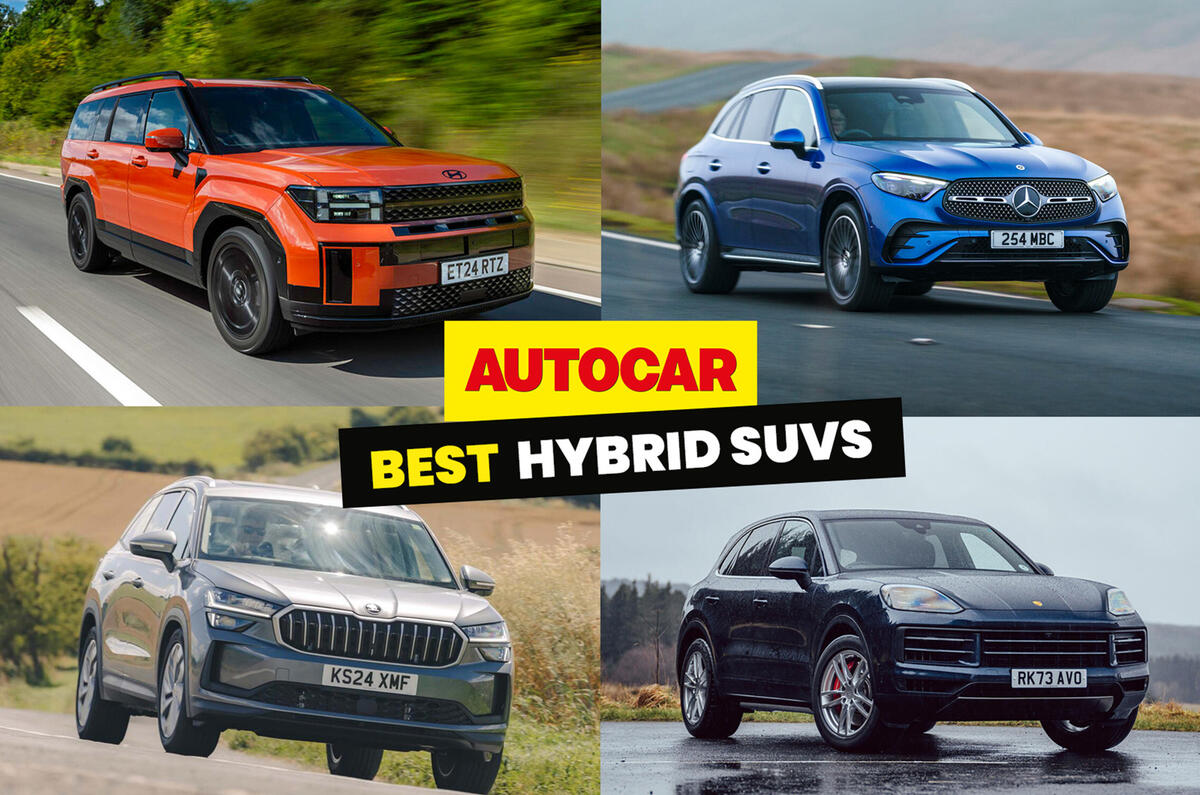Looking for a practical SUV that balances power, efficiency and eco-conscious driving? If so, a hybrid is the smart choice.
In a market divided between petrol and electric, hybrid SUVs deliver a winning mix of both.
At their best, they offer some of the fuel savings associated with an electric car teamed with the steadfastness of a combustion engine.
They're also a hit with company car drivers, thanks to lower benefit-in-kind tax rates, making them a savvy financial pick too.
This list comprises of regular hybrid and plug-in hybrid SUVs.
PHEV tech works especially well in SUVs, where there's space to fit batteries and motors without sacrificing too much practicality or comfort. Regular hybrid SUVs are less economical but are typically cheaper to buy and don’t need to be plugged in.
Topping our list is the Skoda Kodiaq PHEV. Our testers were impressed with its comfort, practicality and its 71 miles of electric-only range.
Keep reading to dive into our top picks and we will help find the right hybrid SUV for you.
Best for: All-round ability
The Volkswagen Tiguan, Volkswagen Passat, Skoda Superb and Skoda Kodiaq all share the same platform and powertrains, but it’s the Kodiaq that really stands out to us.
The PHEV version's impressive 71-mile (WLTP) electric range puts head and shoulders above most other PHEVs in its class, while its tall, practical design makes it a family-friendly powerhouse.
The middle row is so spacious that it rivals the Mercedes S-Class limo for leg room.
The boot is massive too, offering 745 litres worth of space.
There is a catch, though: there’s no seven-seat option for the PHEV. That’s exclusive to the regular ICE models.
Read our Skoda Kodiaq review









Join the debate
Add your comment
I’m right in the middle of this dilemma because I plan to buy a new car next year and a hybrid SUV is at the top of my list. The Kodiaq PHEV and Sportage both look like that perfect in-between step before going fully electric. Most of my driving is school runs and a weekly motorway trip, so decent EV range plus petrol backup feels ideal. I’ve started checking total ownership costs more carefully now, finance, servicing, even random things like https://mepco.pissedconsumer.com/customer-service.html because hybrids only really shine when the numbers and the daily routine both work for you.
Hybrid SUVs are a great middle ground if you want to cut fuel bills without going fully electric. The Skoda Kodiaq PHEV stands out with big-car space, a huge 71‑mile electric range and a comfortable, family‑friendly cabin.
Oh dear, PHEVs - where to start? Two main issues for me
1. should always, always, have had their emissions based on a combination of battery full and battery empty. Stop manufacturers taking the p!ss by managing to package a big battery with a turbo V8 and this be considered an eco car. Whereas a smaller, lighter car can't fit a big enough battery to be able to achieve the required EV only range. Utter nonsense
2. neighbour has a Mercedes C350e, 7 years old and 35k mileage and worth £13.5k trade in if working. A failure of the high voltage battery has left her with no choice but to pay a £9k (!) replacement cost otherwise the car won't move and has no value. So we're going to start writing off cars when they're worth £9k are we?
For someone who typically owns cars 7-12yrs old I'll be avoiding PHEVs for as long as possible. The paltry fuel savings are completely offset by battery replacement costs or insurance to cover you against it happening